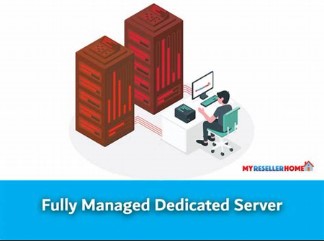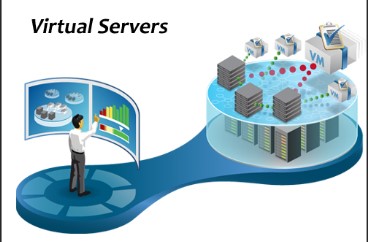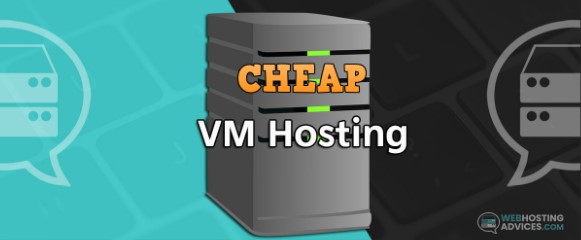Managed Server
In the dynamic world of digital business, the infrastructure you choose can significantly impact your success. Enter managed servers—a solution designed to streamline operations, enhance security, and optimize performance.
The Evolution of Server Management
Server management has evolved remarkably over the years. Initially, businesses relied on cumbersome and costly in-house servers.
With the advent of cloud technology and the increasing complexity of IT needs, managed servers emerged as a sophisticated alternative. They offer the perfect blend of expertise, efficiency, and innovation, eliminating the need for businesses to maintain their server hardware and software.
Why Managed Servers are Crucial for Modern Businesses
In today’s fast-paced business environment, downtime is not an option. Managed servers ensure that your website or application is always available, running smoothly, and secure from cyber threats.
They provide businesses with the agility to respond to market demands quickly, scaling resources as needed without the hassle of manual intervention.
Who Benefits from Managed Servers?
From startups to large enterprises, any organization can benefit from managed servers. Small businesses gain access to enterprise-level technology and support without the overhead costs.
Large enterprises can offload the burden of routine maintenance, allowing their IT teams to focus on strategic initiatives. Even individual developers and creative professionals can harness the power of managed servers to enhance their projects’ reliability and performance.
Understanding Managed Servers: The Fundamentals
What is a Managed Server?
A managed server is a dedicated server where the hosting provider handles all technical aspects, from setup and maintenance to security and updates. This allows businesses to leverage high-performance infrastructure without needing in-house IT expertise.
Key Features and Services Included in Managed Hosting
Managed hosting typically includes a suite of services designed to ensure optimal performance and security. These services often encompass automated backups, regular software updates, advanced security measures, and around-the-clock technical support.
Additionally, providers may offer performance monitoring and optimization services to keep your server running at peak efficiency.
Managed vs. Unmanaged Servers: Understanding the Difference
The primary distinction between managed and unmanaged servers lies in who is responsible for maintenance. With unmanaged servers, the client takes full responsibility for setup, configuration, and upkeep. This requires a high level of technical expertise and time commitment. In contrast, managed servers come with a team of experts who handle all technical details, allowing businesses to focus on their core activities.
Selecting the Right Managed Server for Your Needs
Assessing Your Business Requirements: Performance, Security, and Budget
Before selecting a managed server, it’s crucial to evaluate your specific needs. Consider the nature of your business, the volume of traffic you expect, and your security requirements. Equally important is aligning your server choice with your budget, ensuring you get the best value for your investment.
Choosing Between Different Managed Hosting Providers
Not all managed hosting providers are created equal. Look for providers with a solid reputation, excellent customer reviews, and a track record of reliability. Consider their range of services, customer support quality, and the scalability of their solutions. A good provider will offer a balance of performance, security, and cost-effectiveness.
Customization Options: Tailoring Your Server to Your Specific Needs
Every business has unique requirements, and your managed server should reflect that. Choose a provider that offers customization options, allowing you to select the right operating system, control panel, and software stack. This ensures your server environment aligns perfectly with your operational needs and business goals.
Advantages of Using Managed Servers
Enhanced Security: Protecting Your Data with Expert Oversight
Security is a paramount concern for any business. Managed servers offer advanced security features, including firewalls, intrusion detection systems, and regular security audits. These measures, combined with expert oversight, provide robust protection against cyber threats and data breaches.
Superior Performance: Optimizing Speed and Reliability
Managed servers are optimized for performance, ensuring your website or application runs smoothly even during peak traffic times. With high-performance hardware, optimized software configurations, and continuous monitoring, managed servers deliver unparalleled speed and reliability.
24/7 Technical Support: Peace of Mind with Professional Assistance
One of the standout benefits of managed servers is access to round-the-clock technical support. Whether you encounter a technical glitch at midnight or need assistance with server configuration during business hours, expert help is just a call away, ensuring minimal disruption to your operations.
Time-Saving Benefits: Freeing Up Resources to Focus on Your Core Business
By outsourcing server management, businesses can save significant time and resources. This allows internal teams to focus on strategic initiatives, innovation, and other core business activities, rather than getting bogged down by routine maintenance tasks.
Setting Up and Migrating to a Managed Server
Step-by-Step Guide to Setting Up Your Managed Server
Setting up a managed server is straightforward when you follow a structured approach. Start by selecting your desired configuration and provider. Once the server is provisioned, configure your software environment and security settings. Finally, test the setup to ensure everything is functioning correctly before going live.
Best Practices for Smooth Migration from Existing Hosting Solutions
Migrating to a managed server requires careful planning. Begin by auditing your current hosting environment and identifying all data and applications that need to be transferred. Backup all critical data and establish a migration timeline to minimize downtime. Test the new environment thoroughly before making the final switch.
Minimizing Downtime During Migration: Tips and Tricks
To ensure a seamless transition, schedule migrations during off-peak hours and inform your users of any potential downtime. Use staging environments to test the new setup and perform incremental data transfers to avoid overwhelming the server. Post-migration, monitor the new environment closely to quickly address any issues that arise.
Maintaining and Optimizing Your Managed Server
Regular Updates and Maintenance: Keeping Your Server Running Smoothly
Consistent maintenance is key to server health. Managed hosting providers take care of regular updates and patches, ensuring your server’s software is up-to-date and secure. This proactive approach helps prevent vulnerabilities and maintains optimal performance.
Monitoring and Reporting: Staying Informed About Server Performance
Continuous monitoring tools track server performance metrics such as CPU usage, memory consumption, and network traffic. Regular reports provide insights into server health and identify potential issues before they become critical, enabling timely intervention.
Scaling Your Managed Server: Adapting to Growing Business Needs
As your business grows, so will your server needs. Managed servers offer scalability options, allowing you to upgrade resources like CPU, RAM, and storage without significant downtime. This flexibility ensures your server can handle increased traffic and data demands efficiently.
Troubleshooting Common Issues: Quick Solutions to Keep You Running
Even with the best infrastructure, occasional issues can arise. Common problems include slow performance, connectivity issues, and software errors. Managed hosting providers offer swift troubleshooting and resolution services, ensuring minimal disruption to your operations.
Cost Considerations and ROI of Managed Servers
Understanding the Pricing Models: What to Expect
Managed server pricing varies based on factors such as hardware specifications, service level agreements, and additional features. Understanding these pricing models helps businesses make informed decisions that align with their budget and performance needs.
Calculating ROI: Long-Term Benefits vs. Initial Investment
While managed servers may have higher upfront costs, the long-term benefits often outweigh the initial investment. Improved performance, enhanced security, and reduced downtime translate to better user experiences and higher revenue, providing a solid return on investment.
Comparing Managed Hosting Costs to Other Hosting Solutions
When evaluating costs, consider the total cost of ownership, including hardware, maintenance, and support. Managed hosting often proves cost-effective compared to in-house or unmanaged solutions, particularly when factoring in the value of professional management and support.
Future Trends in Managed Hosting
Emerging Technologies in Server Management
The landscape of server management is continually evolving with technologies like containerization, serverless computing, and edge computing gaining traction. These innovations offer new opportunities for efficiency and performance in managed hosting.
The Role of AI and Automation in Managed Servers
Artificial intelligence and automation are revolutionizing server management. AI-driven analytics enhance performance monitoring, while automation streamlines routine tasks such as backups and updates, reducing human error and increasing efficiency.
Predictions for the Future of Managed Hosting Services
Looking ahead, managed hosting services will likely become even more integrated with cloud solutions, offering hybrid models that combine the best of both worlds. Enhanced security measures and personalized services will also continue to evolve, catering to the growing needs of businesses.
Conclusion: Maximizing the Benefits of Your Managed Server
Recap of Key Advantages
Managed servers offer numerous benefits, including enhanced security, superior performance, 24/7 technical support, and significant time savings. These advantages make them an invaluable asset for businesses seeking to optimize their digital operations.
Making the Most of Your Managed Hosting Investment
To maximize your investment, choose a reputable provider, tailor your server environment to your needs, and leverage the full suite of services offered. Regularly review and optimize your setup to ensure it continues to meet your business requirements.
Looking Ahead: Preparing Your Business for the Future with Managed Servers
As digital landscapes evolve, staying ahead of trends and technologies is crucial. Invest in managed servers to ensure your business remains agile, secure, and ready to meet future challenges and opportunities head-on.
Call to Action: Elevate Your Business with Managed Hosting
Contact Our Experts for Personalized Advice
Need help selecting or configuring your managed server? Reach out to our team for expert guidance tailored to your unique needs.
Explore Our Managed Server Plans
Discover our range of managed server plans designed to offer the best performance, security, and value for your business.
Join Our Community for the Latest Insights and Updates in Managed Hosting
Stay informed about the latest trends, tips, and best practices in managed hosting by joining our community. Get access to exclusive resources and expert advice to keep your business ahead of the curve.





